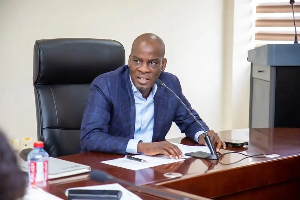Punishing pregnant school girls: Addressing critical issues unconstitutionally
The Alliance for Reproductive Health Rights (ARHR) has noted with dismay, suggestions by a Deputy Director of the Ghana Education Service that: “basic school girls who get pregnant should be punished severely to serve as deterrent to their peers.”
The story which was reported by the Ghana News Agency and replicated by many other media houses quotes Madam Bernadette Banongwie, who is also Head of the Inspectorate Division at the GES Headquarters as saying because the government was investing so much into educating girls, “any girl who decided to waste such resources through loose morals should be made to re-pay such investment.” Article 28 (3) of the 1992 Constitution states: “A child shall not be subjected to …inhuman or degrading treatment or punishment”. For the avoidance of doubt, the constitution further states in Clause 5 of the same article that a child is anyone below 18 years. With this basic understanding of our laws, any form of punishment meted out to girls who get pregnant will be an affront against their rights enshrined in the constitution.
Reproductive rights embraces key human rights principles that are already recognized in national laws, international human rights documents and other consensus documents such as the Maputo accord. One of such documents is Ghana’s Reproductive Health Policy and Standards.
According to the United Nations Population Fund: “Reproductive rights encompass the right to reproductive and sexual health throughout the life cycle, reproductive self-determination, including the voluntary choice of marriage and childbearing, and sexual and reproductive security, including freedom from sexual violence and coercion” (UNFPA, 1997).
Consequences
ARHR is certain that if this suggestion had been weighted appropriately by Madam Banongwie, it would have revealed that any form of punishment or socially insensitive action against pregnant girls will constitute a violation of their reproductive health rights.
In the unlikely event that this action is carried out, the consequences could include resorting to unsafe termination of pregnancies to avoid punishment. In 2011, the Ghana Health Service reported that 8,382 girls between 10 and 19 went through the process of abortion. Experts in Ghana have posited that nearly 45% of abortions are unsafe and not reported.
Unsafe abortions contribute substantially to lasting health problems and maternal deaths. Is this what Madam Bernadette Banongwie wants to see happen in this country? Essentially, the effect of such punishments will be increased maternal and newborn deaths that will worsen an already bad situation in achieving Millennium Development Goals 4 and 5.
Realistic Way Out
There are well tested evidence-based approaches to solving teenage and child pregnancy crisis in countries like Ghana. The World Health Assembly, in May 2011, adopted a resolution that called on countries to improve the health of young people. Among such specific measures is the need to: review and revise policies to protect young people from early child-bearing; provide access to contraception and reproductive health care services; and to promote access to accurate information on sexual and reproductive health.
Accurate sex education for students will make them aware of the consequences of unprotected sexual relations. The right to information and means to do so are tied to the right to attain the highest standard of sexual and reproductive health.
Lack of information and knowledge on reproductive health must be addressed at the school curriculum level and by parents without any further delays. Preventive programmes in sex education must be made a priority in the curriculum.
GES also has the task of ensuring that the educational system protects young girls from sexual predators both within and outside the schools. There have been many incidents in the past where GES has been accused of glossing over teachers who have sexually abused and impregnated their students. A case in point is a teacher called, Zackaria Amo, whom Joy FM revealed has been transferred to three different schools in three years by the GES due to his sexual escapades. If such violators are treated with kid gloves, what assurances do citizens have that an issue of this nature will be addressed with dispatch? Mad. Banongwie further indicated that despite “vigorous” sensitization by the GES, NGOs and religious bodies, “ill practices such as elopement, teenage pregnancy and early marriage persisted in the district”.
Is there adequate coordination between the GES and civil society to address this canker? GES should consider partnering civil society organizations, especially community-based groups, to ensure that all young girls and boys have access to reproductive health services they need to avoid unsafe sex, mistimed and teenage pregnancies.
The crux of our position is that the GES must adequately implement its social support services for the sake of these young girls. The mere institution of punishment against girls who get pregnant WILL NOT have any positive long lasting effect on the case in point. It will only worsen the plight of such young girls and, at worse, increase the mortality from unsafe abortions. It is risky to jump at cosmetic approaches to deal with such deeply rooted social issues within the educational system. This is a social issue that requires urgent attention to protect the rights of young people.
Contact: Derick Romeo Adogla | d.adogla@arhr.org.gh | Alliance for Reproductive Health Rights
Opinions of Saturday, 16 November 2013
Columnist: Adogla, Derick Romeo














